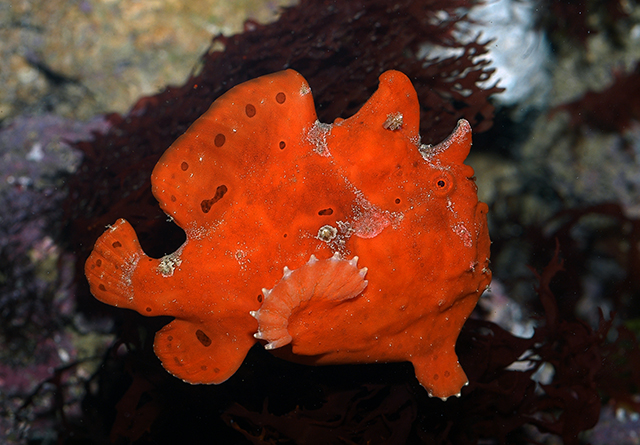| Antennariidae (Frogfishes) |
| 30 cm TL (male/unsexed) |
|
reef-associated; marine; depth range 0 - 75 m |
| Indo-Pacific: Red Sea and East Africa to the Hawaiian and Society islands. |
|
Dorsal spines (total): 3-3; Dorsal soft rays (total): 12-13; Anal spines: 0-0; Anal soft rays: 7-8. Color variable; has a black phase with white pectoral ray tips. Bony part of illicium with numerous dark crossbands and nearly twice as long as the 2nd dorsal spine; esca an elongate tuft of flattened appendage.
Description: Characterized by having a thin posterior membrane covered with spinules attaching second dorsal spine to head; low rounded wart-like swellings partially or fully covering head and body; presence of distinct caudal peduncle (Ref. 90102). |
| Inhabit shallow sheltered reefs (Ref. 9710). Adults usually with sponges; juveniles openly on sand or reef, mimicking small sponges or nudibranchs (Ref. 48635). Benthic (Ref. 58302). Oviparous. Eggs are bound in ribbon-like sheath or mass of gelatinous mucus called 'egg raft' or 'veil' (Ref. 6773). |
|
Least Concern (LC); Date assessed: 06 September 2021 Ref. (130435)
|
| harmless |
Source and more info: www.fishbase.org. For personal, classroom, and other internal use only. Not for publication.

